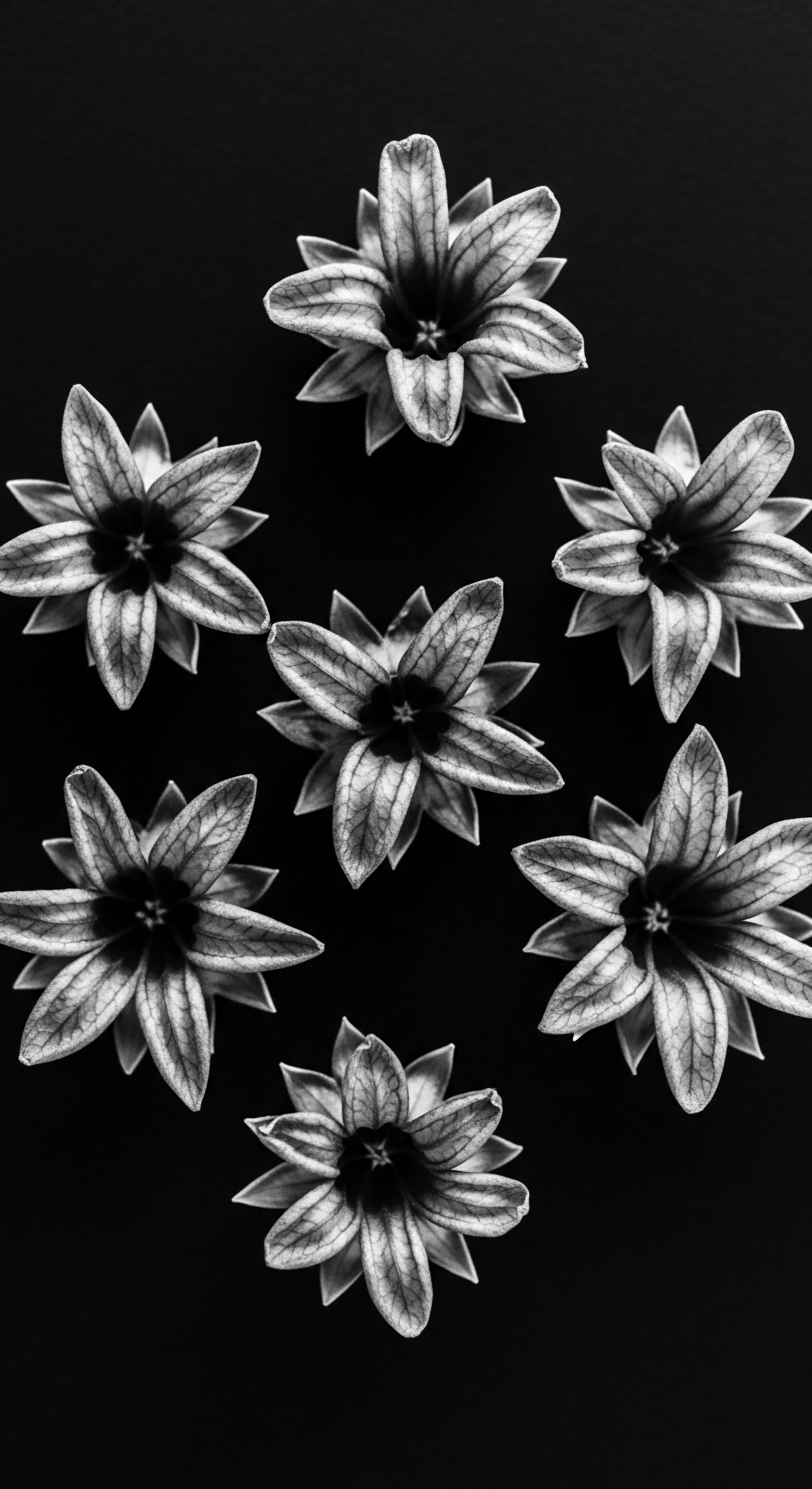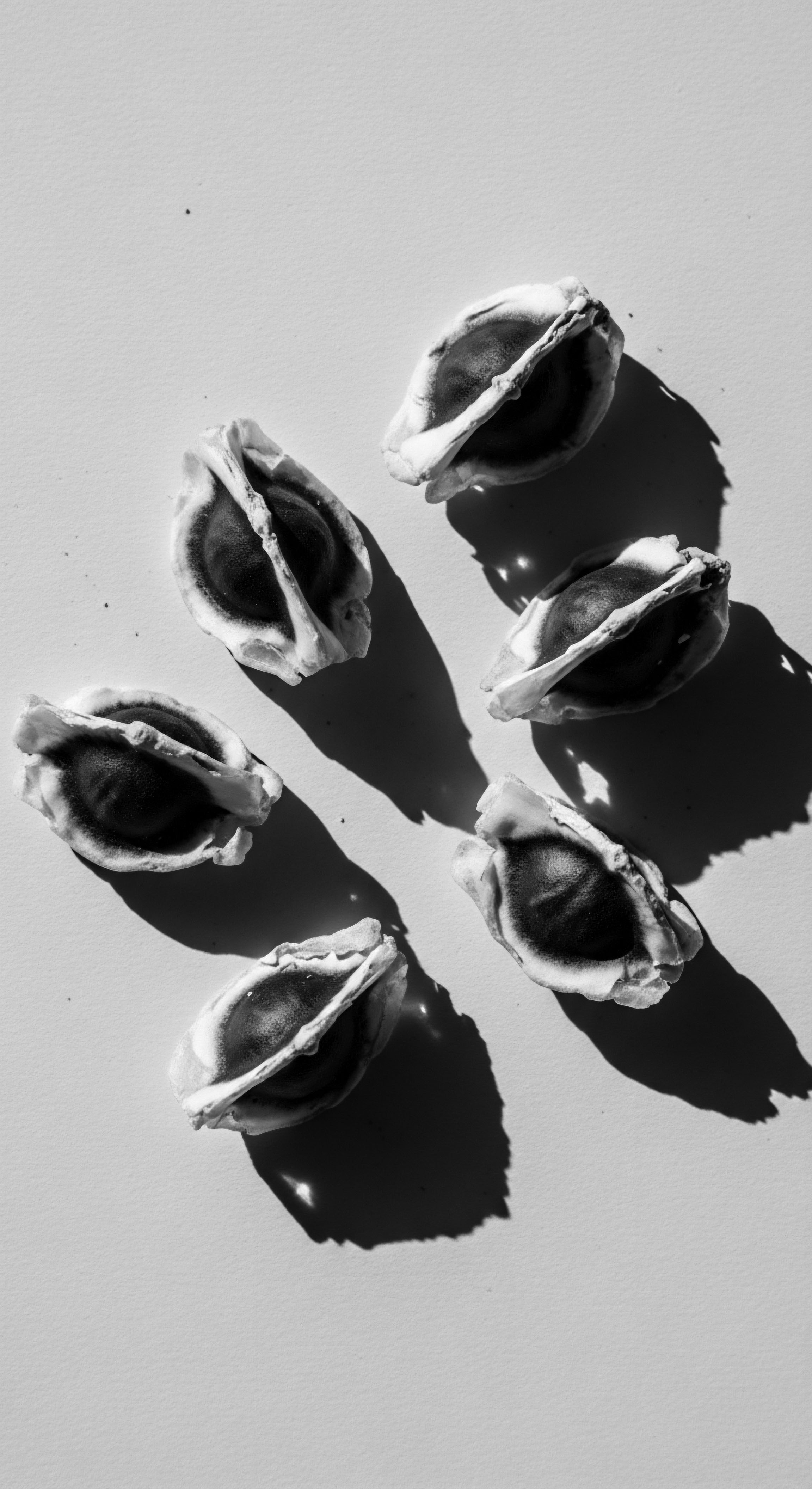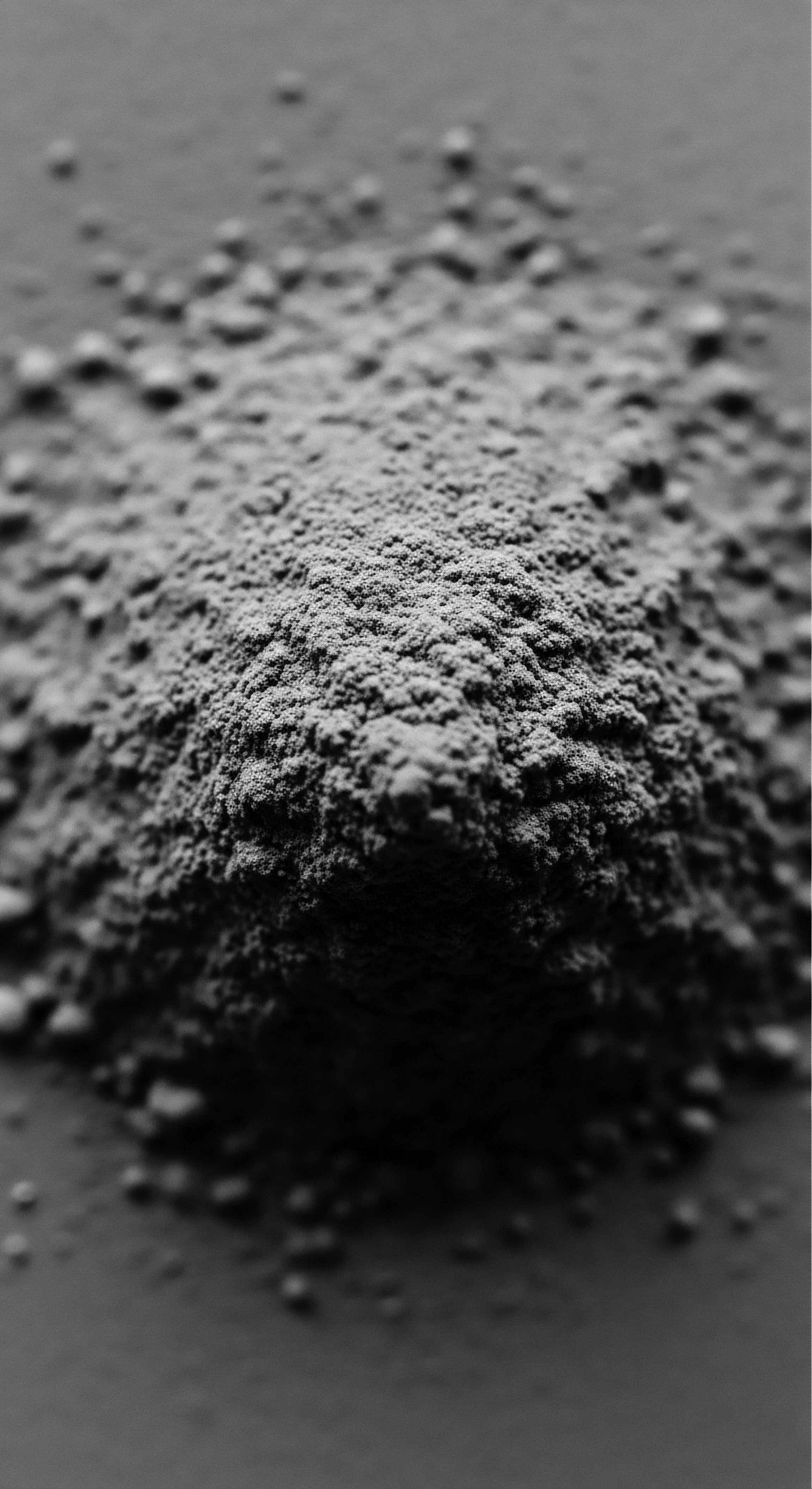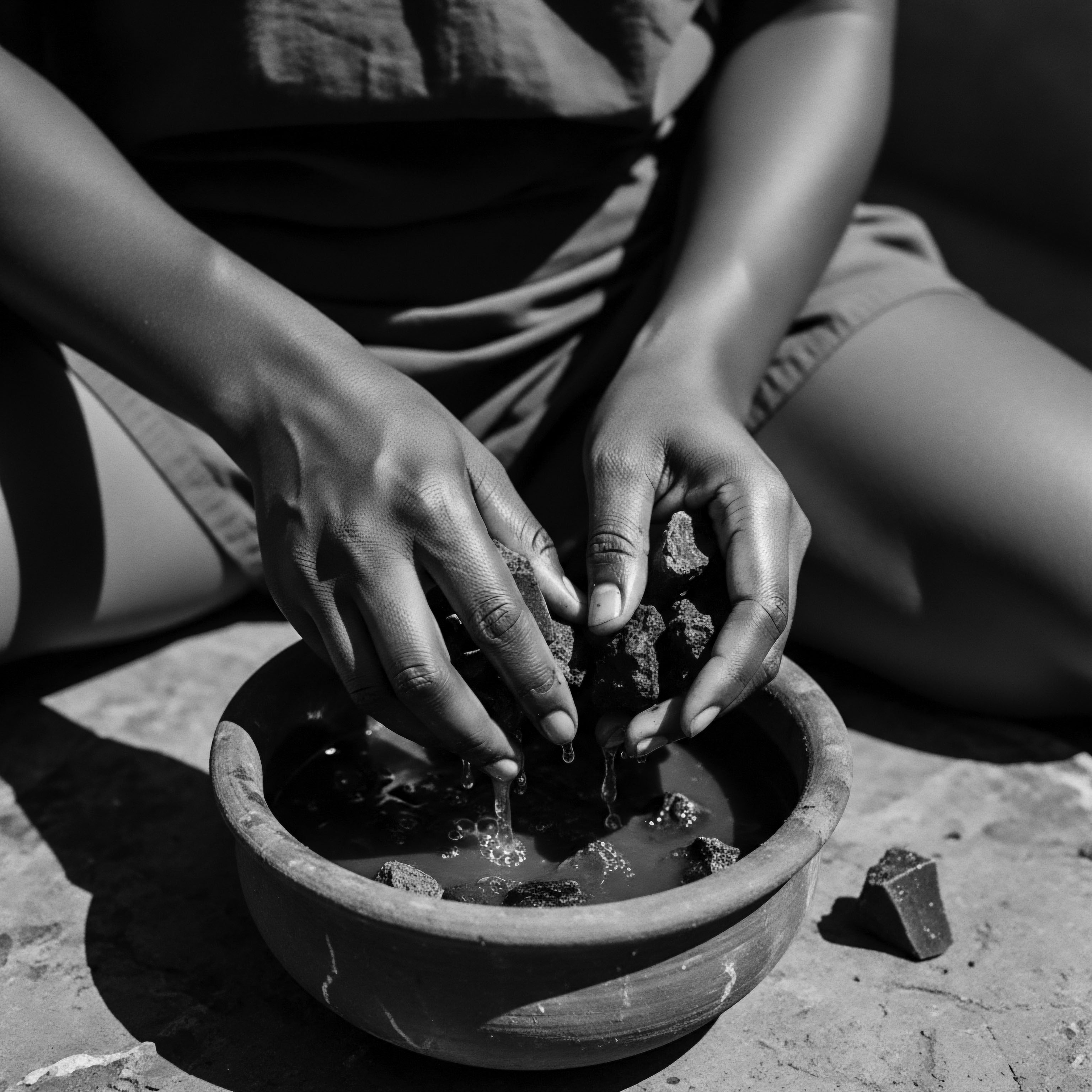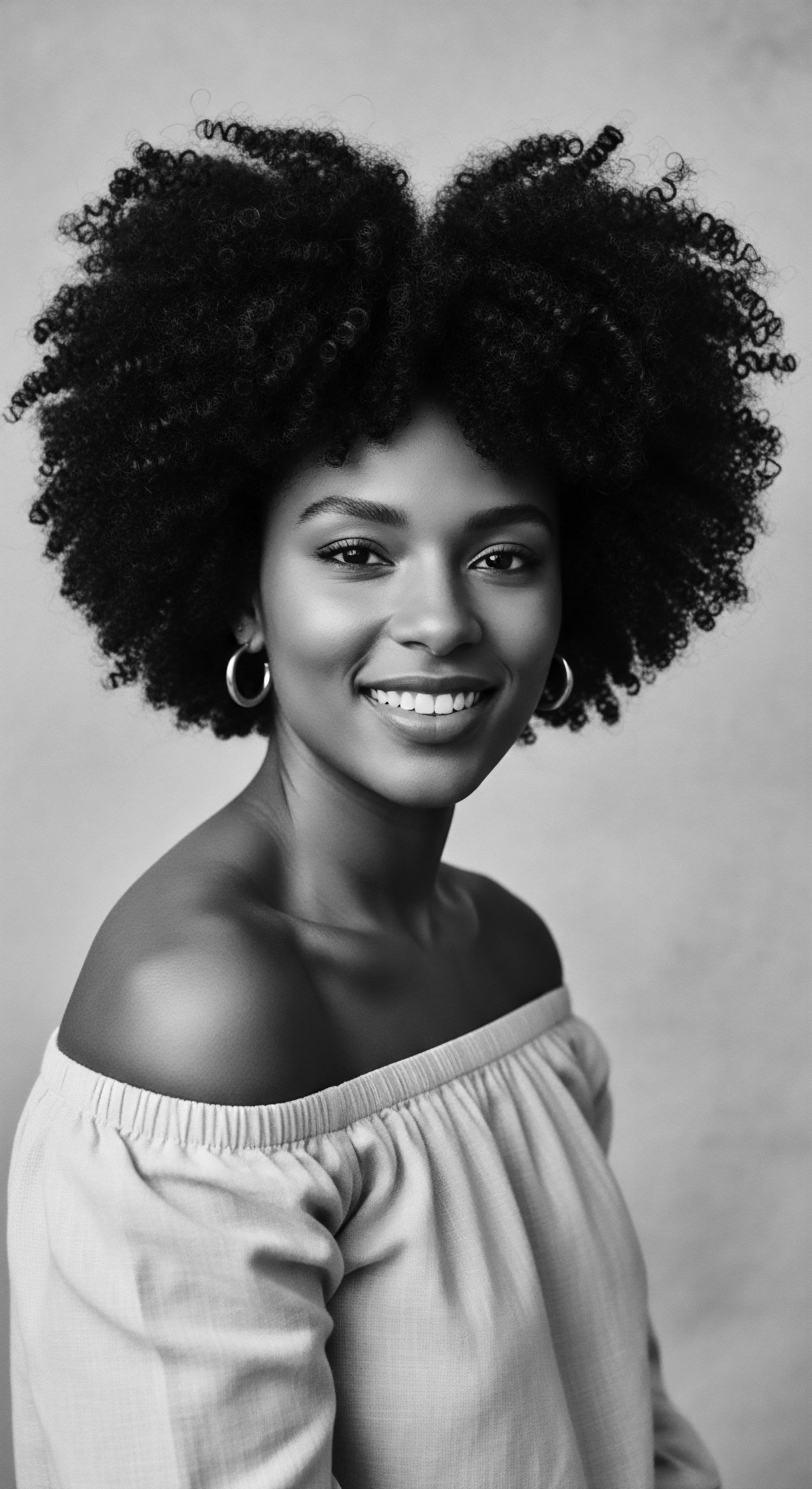
Fundamentals
The core concept of “Hair Fermentation” unfurls from a profound, yet remarkably simple, natural process. At its simplest, it describes the transformative journey of organic substances when beneficial microorganisms ❉ like bacteria and yeasts ❉ begin their intricate work upon them. Consider this a gentle, patient alchemy, where raw materials change in fundamental ways. Within the context of caring for our strands, particularly those with the rich textures of Black and mixed-race heritage, Hair Fermentation signifies the thoughtful preparation of ingredients to enhance their inherent goodness for hair and scalp wellness.
The meaning of this process stretches beyond mere chemical reactions; it carries an ancestral whisper, a knowing passed down through generations. Ancient communities, without the aid of modern microscopes, observed firsthand how certain preparations of plants, grains, or fruits yielded more potent, nourishing results after a period of quiet transformation. These observations, honed over countless sunrises and sunsets, laid the groundwork for what we now understand as Hair Fermentation.
It is a method that enriches, making accessible properties that might otherwise remain dormant within the raw material. This transformation yields enhanced compounds with augmented bioavailability, meaning our hair and scalp can welcome and truly absorb the goodness offered.
Hair Fermentation is the gentle, microbial transformation of natural ingredients, enhancing their beneficial properties for ancestral and contemporary hair care.
A prime example that resonates across cultures, though perhaps most famously from the East, is the practice of fermenting rice water. This unassuming liquid, traditionally reserved for rinsing strands, gains a remarkable potency when allowed to ferment. The starch water, leftover from soaking or cooking rice, becomes a powerhouse, releasing amino acids, B vitamins, vitamin E, minerals, and antioxidants into a readily usable form. The explanation here lies in the biochemical changes ushered in by the microbial activity, allowing the hair cuticle to smooth, imparting shine, and contributing to overall strand resilience.

The Whisper of Microbes
Microorganisms, often unseen architects of change, conduct this biological orchestration. They are not merely present; they are active partners in unlocking the potential of botanical elements. These microscopic life forms break down complex compounds into simpler ones, creating new beneficial substances, sometimes referred to as postbiotics. For textured hair, which often thirsts for deep nourishment and gentle care, these transformed ingredients often hold a particular allure.
The scalp, a living ecosystem, benefits immensely from this balance. A healthy scalp microbiome, supported by gentle and nourishing practices, provides a fertile ground for vibrant hair to emerge and flourish.
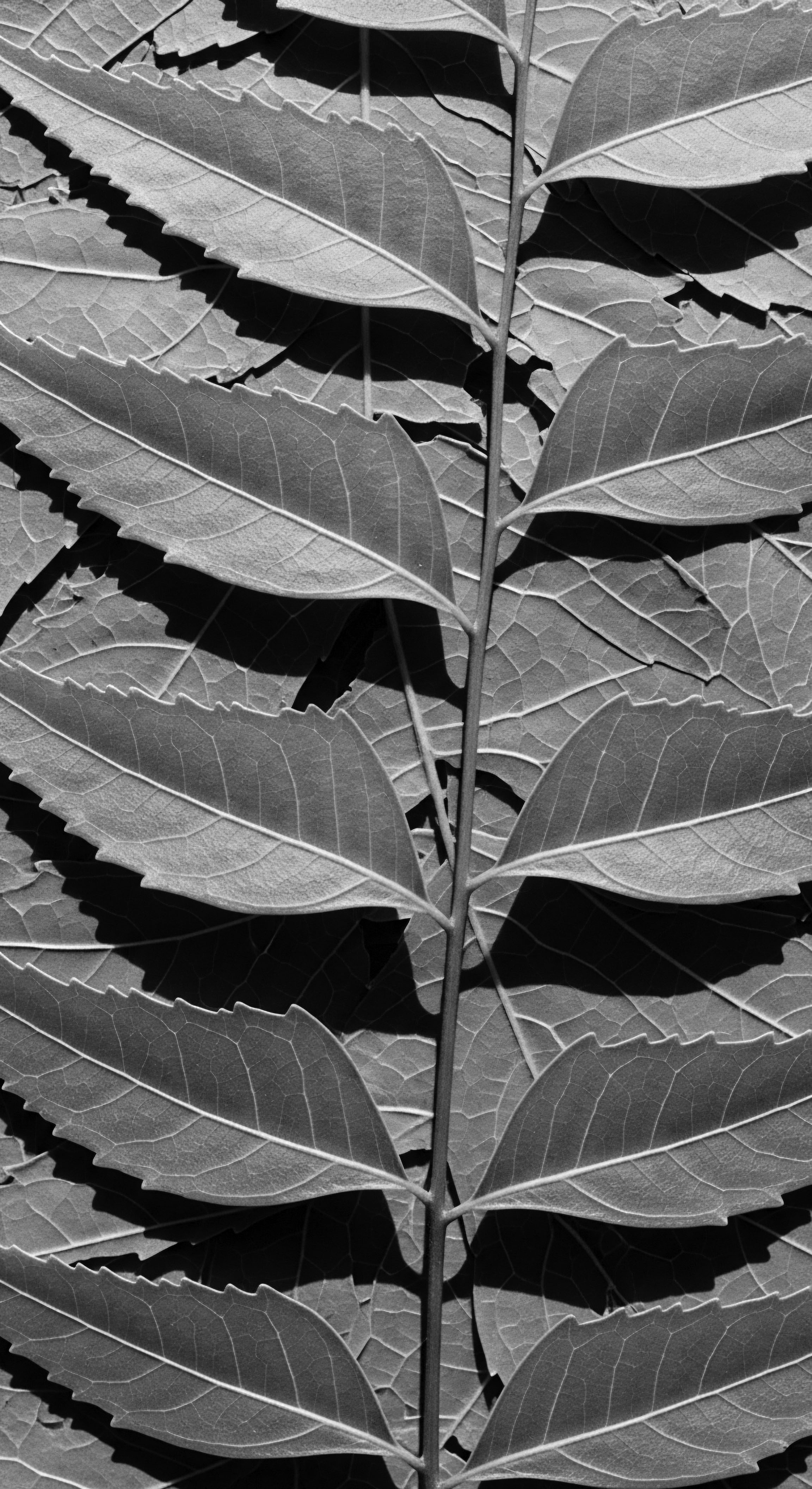
Simple Transformations for Strands
The application of fermented ingredients in hair care is straightforward. It embodies a principle of working with nature, allowing time and tiny allies to refine raw offerings.
- Rice Water Preparation ❉ A common method involves soaking rice in water for a day or two, allowing beneficial bacteria and yeasts to initiate a cascade of biochemical changes. This turns the starchy liquid into a bioactive solution.
- Herbal Infusions ❉ Some traditional practices involve steeping herbs in water for extended periods, where natural fermentation can occur, releasing a broader spectrum of active compounds.
- Fruit Ferments ❉ Fruits, with their natural sugars, can also be fermented to produce enzymatic rinses or conditioning agents that may help balance scalp pH and impart a soft feel to the hair.
Each approach, whether conscious fermentation or an observed natural transformation, reflects an intuitive grasp of elemental biology and its profound ability to support the vitality of our hair. This ancestral knowing, passed through generations, holds profound lessons for contemporary hair care.
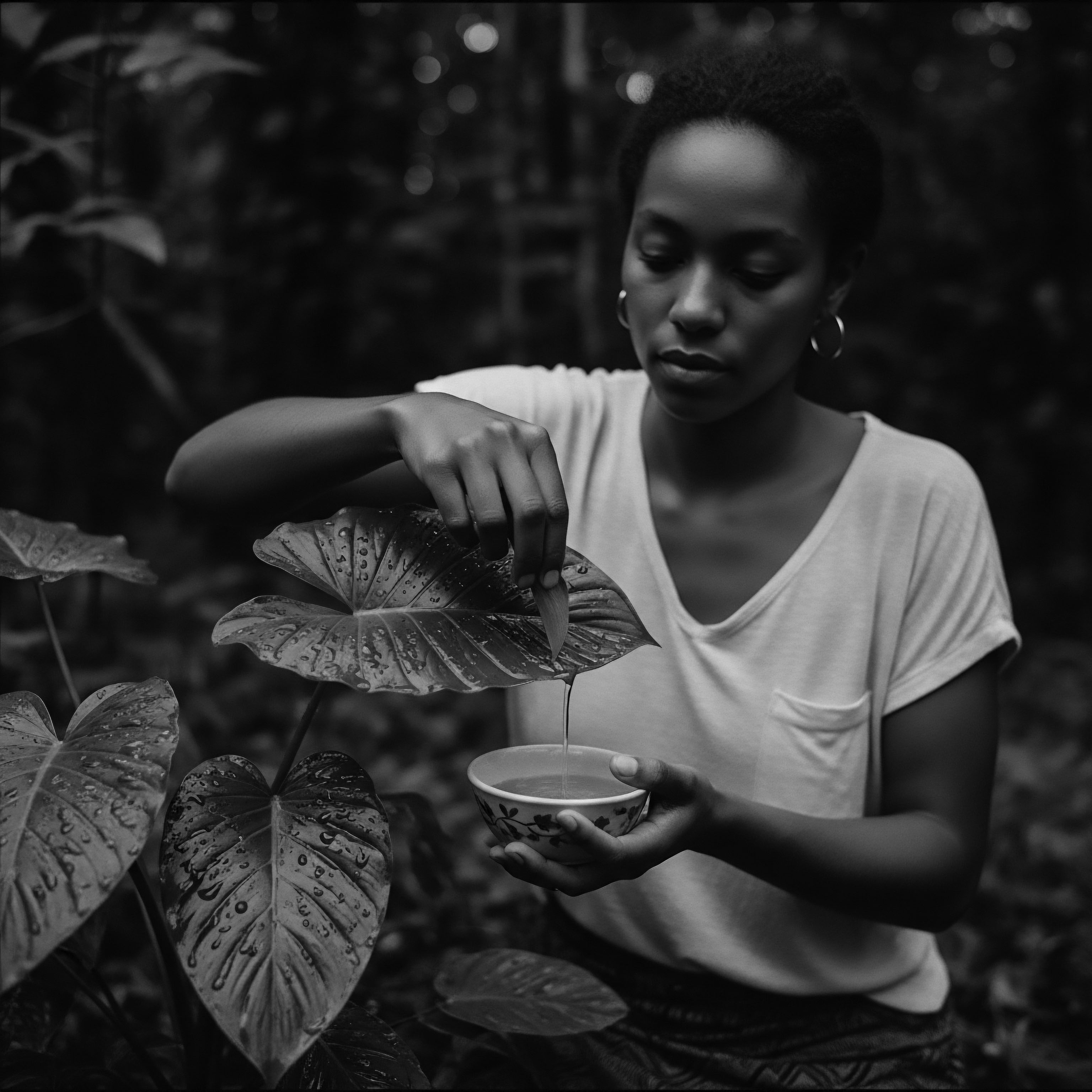
Intermediate
Moving beyond the basic delineation, the intermediate comprehension of Hair Fermentation reveals its subtle yet powerful influence on hair’s intrinsic architecture and enduring health. This process, rooted in observation and patient practice across diverse cultures, transcends mere transformation. It represents a sophisticated, if unwritten, understanding of how to augment nature’s offerings. When we consider the diverse needs of textured hair, the underlying science of Hair Fermentation reveals itself as a conduit for heightened efficacy, yielding benefits that go beyond the capabilities of raw ingredients alone.
The meaning of Hair Fermentation, at this level of exploration, encompasses not just the act of microbial conversion, but the resultant increase in an ingredient’s bioavailability. This means that components within the fermented substance become more readily absorbed by the hair shaft and scalp. For instance, the fermentation of rice water markedly raises the levels of inositol (Vitamin B8), a distinct carbohydrate known to penetrate hair strands, strengthening the cortex, improving elasticity, and assisting in the repair of damage. This is a prime clarification of why ancient methods held such enduring power.
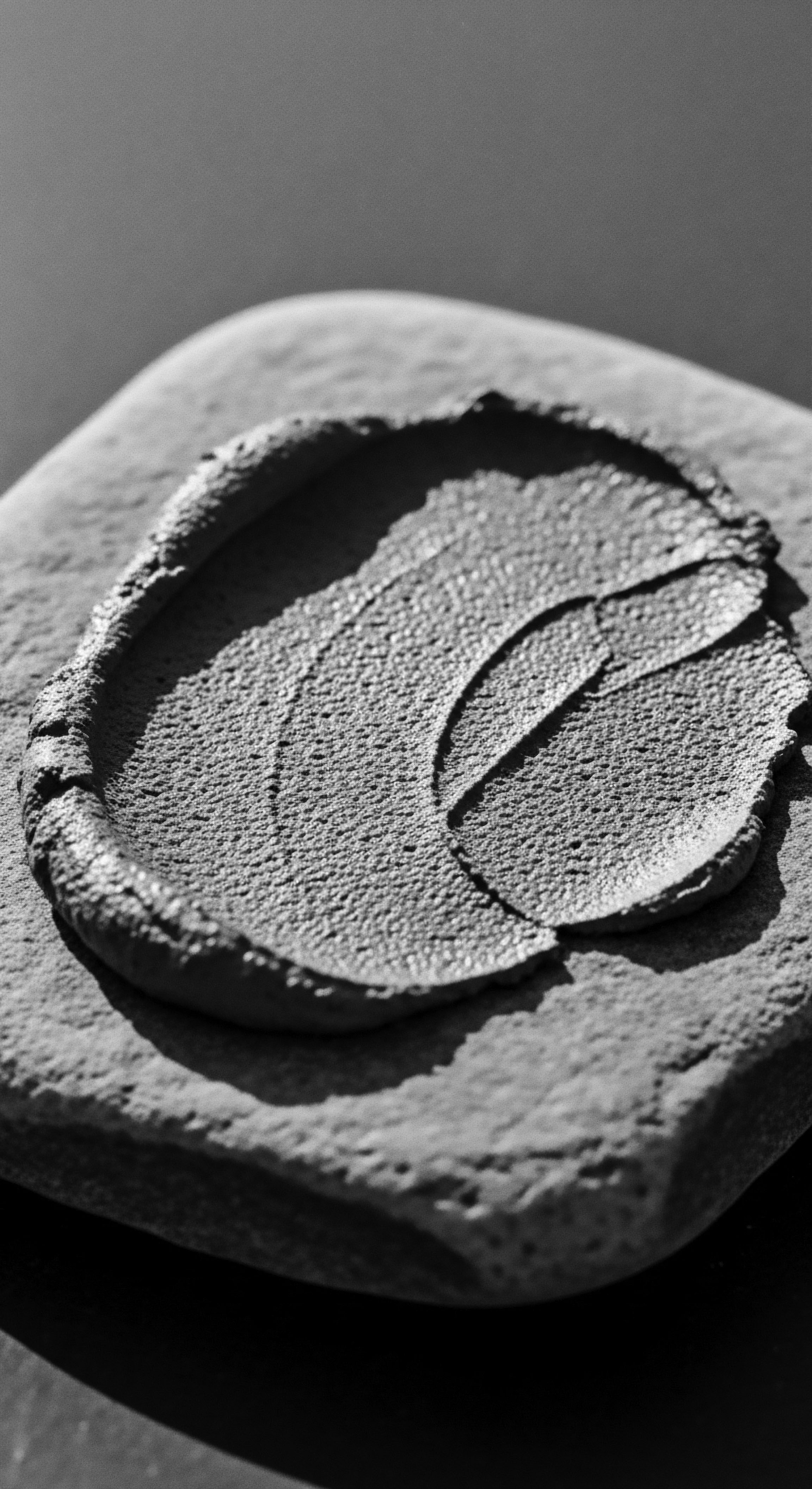
Alchemy of the Ancestors: Enhanced Nutrient Profiles
The microbial activity during fermentation acts as a kind of pre-digestion, breaking down complex molecules into simpler forms. This creates a richer, more diverse nutrient profile than exists in the original material.
- Increased Amino Acids ❉ Proteins, the building blocks of hair, are broken down into more readily absorbable amino acids, which help fortify the hair’s structure and improve moisture retention.
- Vitamin Augmentation ❉ Levels of B vitamins (B1, B2, B6, B8) and vitamin E often increase, supporting cellular functions essential for healthy hair growth and overall vitality.
- Antioxidant Potency ❉ Fermentation can elevate the concentration and activity of antioxidants, which offer protection against environmental stressors and oxidative harm. This protection is especially pertinent for textured hair, which can be prone to dryness and external wear.
The practical consequence of these changes for individuals with textured hair is significant. Coils, kinks, and waves often face unique challenges, including susceptibility to dryness, tangling, and breakage. Ingredients modified through fermentation can offer enhanced hydration, improved manageability, and greater resilience against daily manipulation.
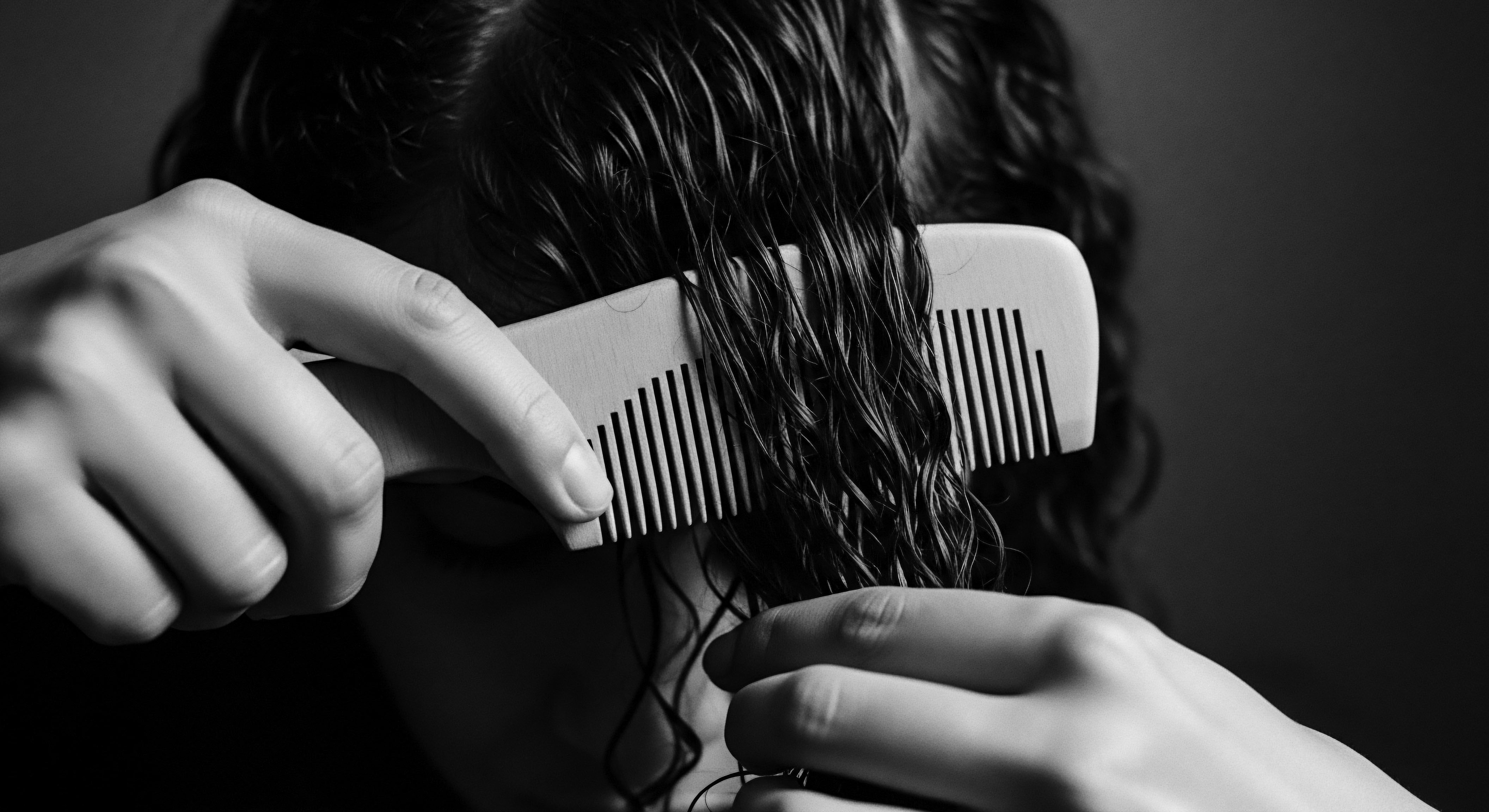
Beyond the Surface: Scalp Microbiome Balance
The scalp is a dynamic ecosystem, home to a delicate balance of bacteria and fungi ❉ its microbiome. A balanced scalp environment is fundamental for the vitality of hair. Hair Fermentation contributes to this balance through the generation of beneficial metabolic byproducts, often termed postbiotics. These compounds can help to:
- Regulate pH ❉ Fermented ingredients often possess a slightly acidic pH, which is ideal for sealing the hair cuticle, boosting shine, and supporting the scalp’s natural acidic barrier against harmful microorganisms.
- Soothe Irritation ❉ The anti-inflammatory properties that can arise from fermentation may help calm scalp irritation and reduce issues like flaking or discomfort.
- Support Beneficial Microbes ❉ Postbiotics can act as nourishment for beneficial microbes on the scalp, fostering a healthy ecosystem that directly influences hair strength, length, and appearance.
This sophisticated interplay between fermented ingredients and the scalp’s microbial community represents a gentle yet powerful strategy for nurturing textured hair from its very foundation. It is a testament to the intuitive wisdom of those who, generations ago, prepared their hair elixirs, unknowingly harnessing microbial power.
Fermentation transforms raw materials, increasing nutrient bioavailability and creating new compounds that enhance hair strength and soothe the scalp.
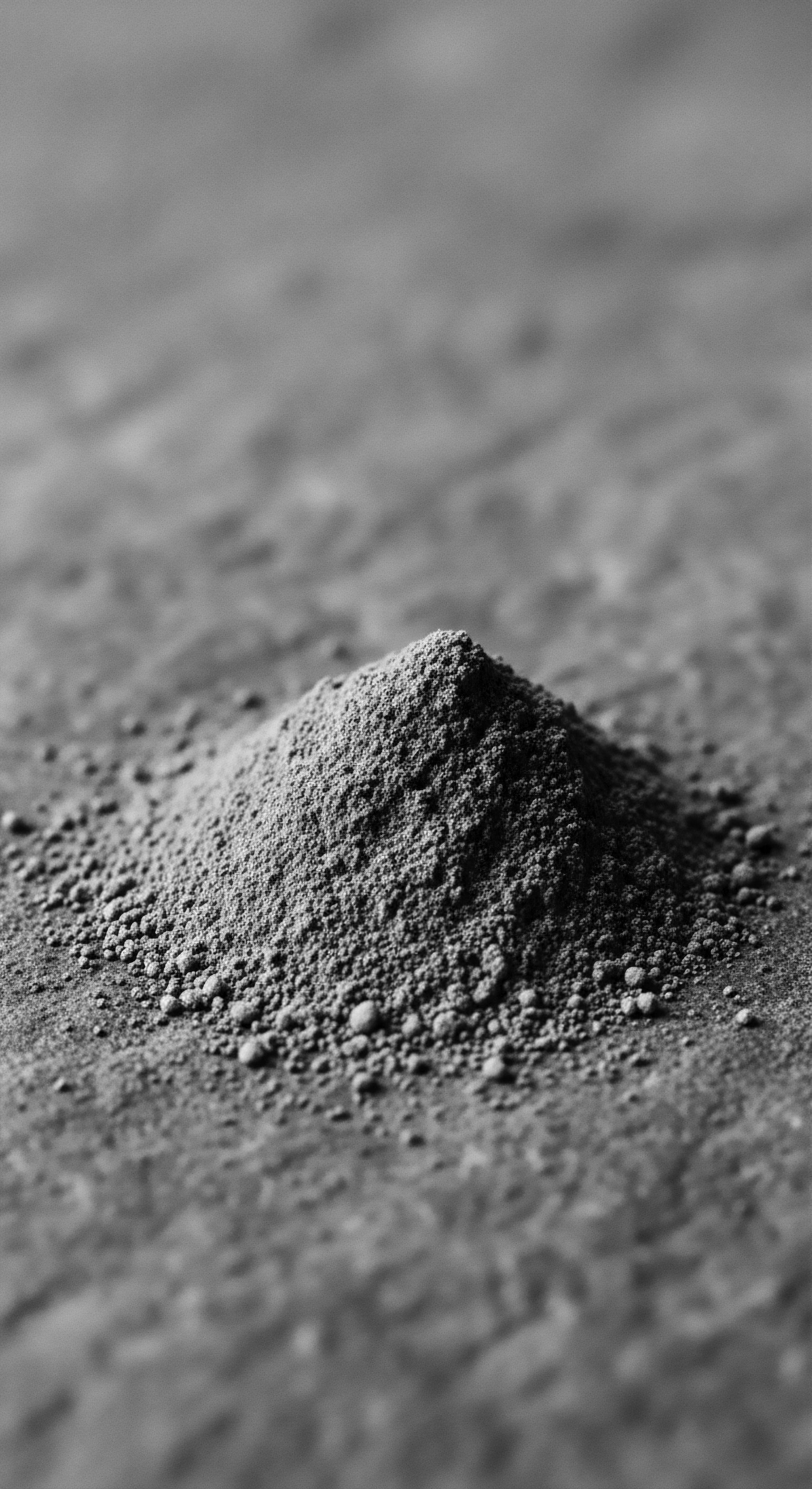
A Balancing Act for Coils and Curls
The structural characteristics of textured hair often lead to specific needs regarding moisture retention and cuticle health. The corkscrew nature of coiled strands means natural oils, or sebum, may not travel as easily from the scalp down the hair shaft, leaving the ends particularly vulnerable to dryness.
Fermentation offers a pathway to address these particular needs. The amino acids and peptides found in fermented ingredients act as humectants, drawing and holding moisture within the hair. The gentle acidity helps to flatten the cuticle, thereby reducing porosity and enabling the hair to hold onto that moisture more effectively, diminishing frizz and enhancing its natural luster. This sophisticated interplay empowers textured hair to retain its innate moisture, allowing its natural patterns to express themselves with vitality.
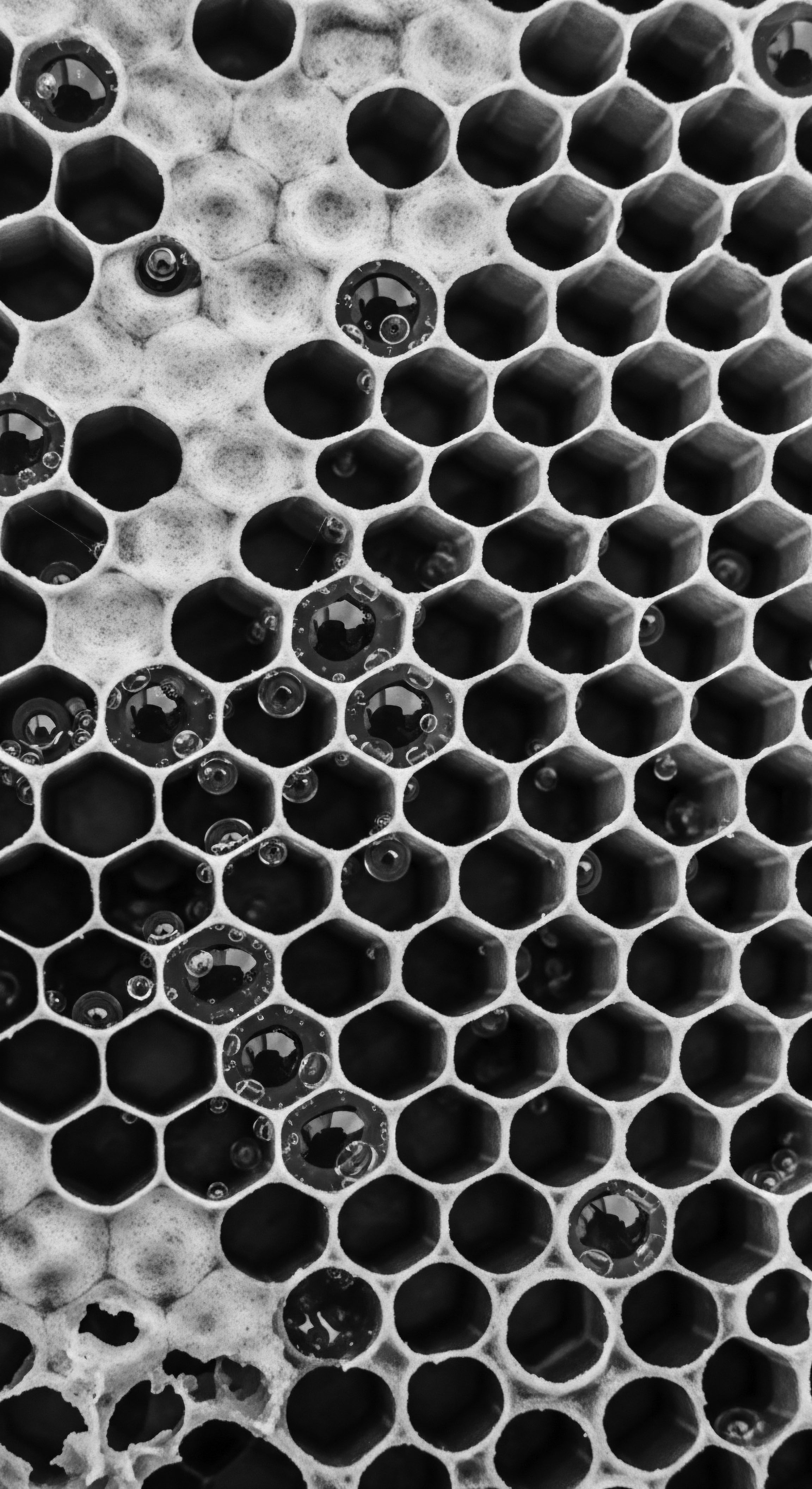
Academic
Hair Fermentation, within the ancestral and contemporary lexicon of holistic hair care, designates the biochemical transformation of organic substrates ❉ often plant-derived matter such as grains, fruits, and herbs ❉ through the metabolic activity of microorganisms, yielding enhanced compounds with augmented bioavailability and novel properties beneficial to the integrity, vitality, and aesthetic presentation of textured hair strands. This expert interpretation extends beyond simple definition, embracing the intricate scientific processes that validate long-held cultural practices, particularly those embedded within Black and mixed-race hair heritage. The meaning here encompasses not merely the fermentation process itself, but its profound implications for hair structure, scalp health, and the historical continuity of care traditions.
The scientific underpinning of Hair Fermentation resides in the targeted action of diverse microbial consortia, primarily lactic acid bacteria and yeasts, upon complex botanical matrices. This bioconversion process orchestrates the hydrolysis of macromolecules ❉ such as starches, proteins, and lipids ❉ into smaller, more reactive entities. The resultant metabolites include organic acids (like lactic acid, which lowers pH), peptides, free amino acids, vitamins (notably B-complex, including inositol), antioxidants (phenolic compounds, flavonoids), and short-chain fatty acids.
These newly formed or amplified compounds possess superior physiochemical characteristics, including reduced molecular size for enhanced epidermal and follicular penetration, improved water solubility, and increased antioxidant capacity. This delineation highlights a sophisticated biochemical refinement, enabling a deeper, more efficacious interaction with the hair and scalp.
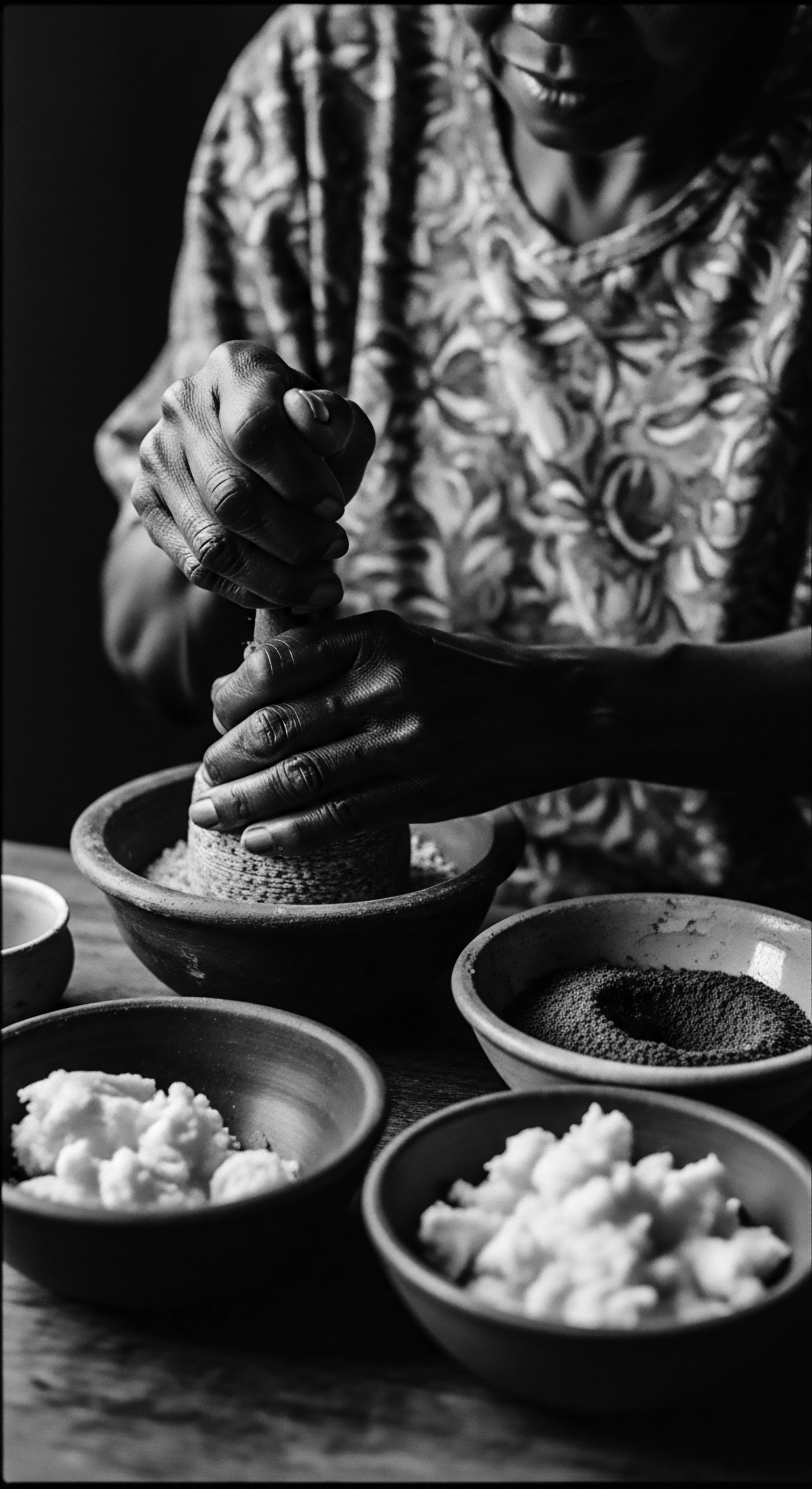
Microbial Mediators of Strand Strength
The impact of Hair Fermentation on hair integrity is multifaceted, primarily mediated through the biotransformation of ingredients into highly active compounds.
- Cuticular Fortification ❉ The acidic pH generated during fermentation, particularly from lactic acid, helps to constrict and smooth the hair’s outer cuticle layer. A sealed cuticle reduces porosity, minimizes moisture loss, and diminishes susceptibility to environmental damage and mechanical stress, concerns often heightened for textured hair due due to its structural variations.
- Protein and Peptide Delivery ❉ Hydrolyzed proteins and amino acids, abundant in fermented solutions, serve as direct building blocks, bolstering the hair’s keratin structure and improving its tensile strength and elasticity. This helps mitigate breakage, a common challenge for coils and curls.
- Enhanced Hydration ❉ The presence of humectants and emollients, either created or intensified through microbial activity, significantly augments hair’s ability to attract and retain moisture, addressing chronic dryness.
The scientific understanding here aligns seamlessly with ancestral wisdom. The very practices that yielded softer, more resilient hair generations ago are now elucidated by the precise mechanisms of microbial action, demonstrating a deep, albeit intuitive, grasp of hair biology.
Academic understanding of Hair Fermentation reveals a sophisticated microbial bioconversion that unlocks superior nutrient delivery, enhancing textured hair integrity and scalp microbiome balance.

The Yao Women’s Enduring Legacy and Its Echoes
To illuminate the practical and cultural depth of Hair Fermentation, we turn to the remarkable case study of the Yao women of Huangluo Village in China, often recognized by Guinness World Records for their extraordinary hair length, averaging six feet or more, and its persistent dark pigment well into old age. Their enduring tradition centers on washing their hair with Huanglo water, a preparation of fermented rice water, often enriched with ginger, pomelo peels, and herbs, traditionally left to ferment in clay pots.
A scientific investigation into the advantages of this “hyper-fermentation” treatment on rice water, conducted by Phenbiox (a spin-off of Bologna University), revealed significant findings. Their patented technology, involving an enzymatic preliminary treatment of rice to release active principles and reduce sugar size, showed that the hyper-fermentation process transforms the sugar fraction of rice water into metabolites highly beneficial for hair. The results of an ex-vivo test on Caucasian, undyed hair strands indicated that fermented rice water could prevent hair dryness, significantly increasing hydration by 30% in rinse-off mode and 60% in leave-on mode.
Furthermore, this process led to a 20% increase in antioxidant power, a 61% increase in protein content, and a remarkable 200% increase in amino acid content. This compelling research provides empirical validation for a centuries-old ancestral practice.
While the Yao women’s practices originate in East Asia, the underlying principle of harnessing natural processes for enhanced hair care resonates deeply within the diverse heritage of Black and mixed-race communities. Though not always explicitly termed “fermentation,” many African and diasporic ancestral practices involved methods that would naturally induce microbial transformation, reflecting a shared intuitive science.
- Herbal Concoctions ❉ Various West African traditions, for example, incorporated prolonged soaking of specific botanicals like leaves or barks for rinses or poultices. These prolonged infusions, exposed to ambient microbial communities, would inevitably undergo a degree of fermentation, enriching the resulting liquid with beneficial compounds for scalp health and hair resilience.
- Shea Butter & Earth Materials ❉ Some communities, like the Himba of Namibia, traditionally applied clay and rich, unrefined butters, which could have contained trace microbial elements or been prepared in ways that allowed for subtle biotransformations, offering unique nourishing properties to coils and kinks.
- Oral Traditions of Preparation ❉ The transmission of hair care knowledge through oral traditions across the African diaspora often included detailed instructions for preparing ingredients, some of which, when followed, would inadvertently initiate fermentation, maximizing the therapeutic potential of natural elements. This deep connection to oral heritage is documented, with 70% of Ashanti families in rural Ghana participating in hair braiding rituals that also serve as vehicles for passing down cultural knowledge, including hair care.
These practices, while varied in their immediate ingredients and cultural manifestations, share a common thread: the patient, informed utilization of nature’s subtle processes to care for hair, often resulting in benefits now understood through the lens of Hair Fermentation. The essence of these practices lies in the intuitive grasp of working with, rather than against, natural cycles to preserve and enhance hair vitality.
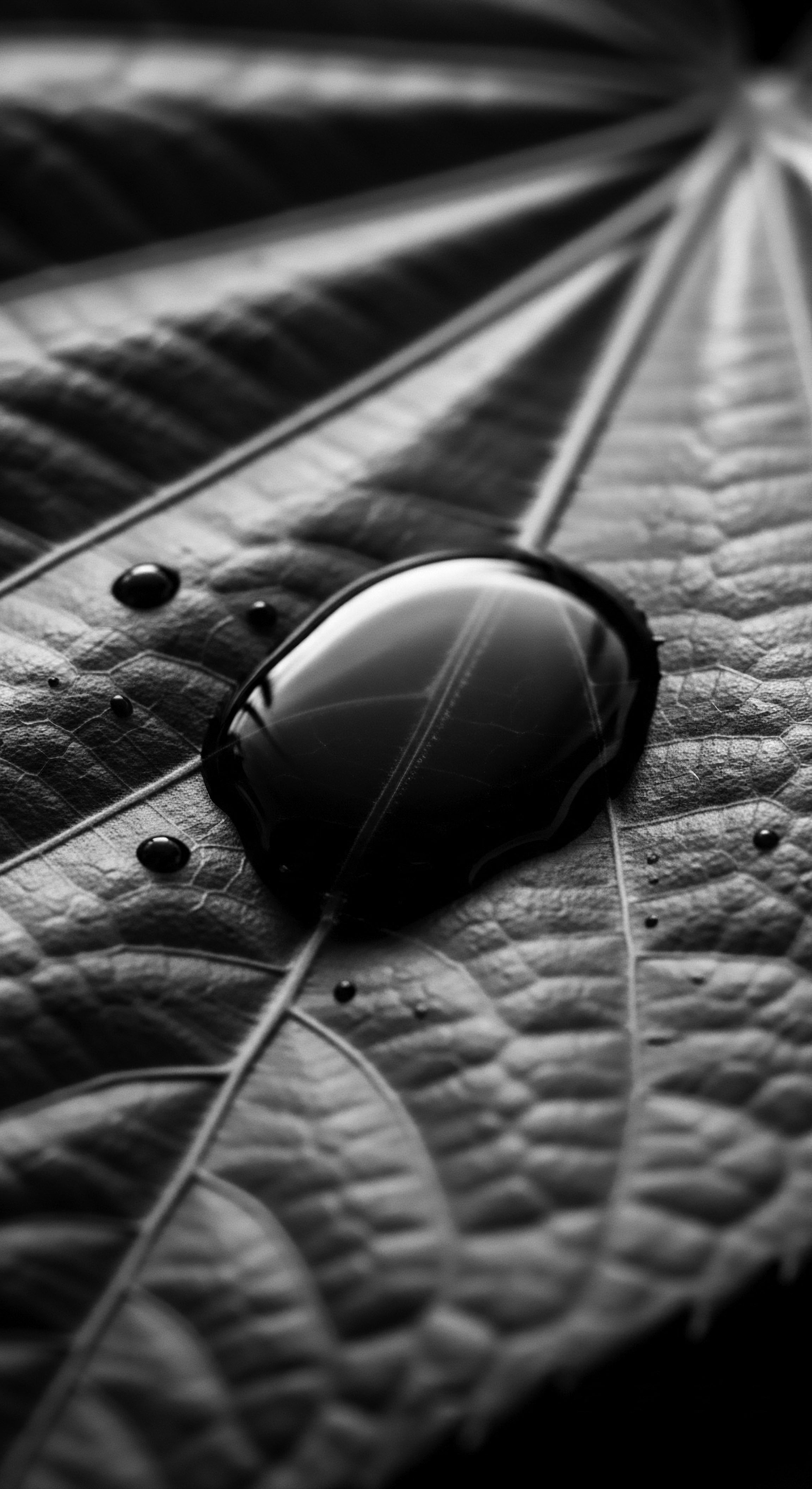
Preserving Wisdom: Fermentation’s Role in Diasporic Hair Identity
The exploration of Hair Fermentation extends into its enduring influence on Black and mixed-race hair identity. In the face of historical pressures to conform to Eurocentric beauty ideals, the reclamation and celebration of natural textures, often supported by traditional care practices, has been a potent act of resistance and self-affirmation. The deliberate adoption of practices that mirror ancestral methods, even if adapted for modern life, fosters a continuity of heritage.
Consider the broader impact of fermented ingredients on the scalp microbiome, a critical area of contemporary trichological interest. An unbalanced scalp microbiome, or dysbiosis, can contribute to issues prevalent in textured hair, such as dryness, flaking, and sensitivity. Fermented plant extracts, rich in postbiotics and organic acids, contribute to maintaining an acidic scalp environment (pH 4.5-6), which discourages the proliferation of pathogenic fungi and bacteria while supporting beneficial flora. This intricate balance is not merely about comfort; it is about establishing a foundational ecosystem for healthy hair growth and preserving the inherent strength and beauty of natural strands.
Research indicates that a healthy scalp microbiome supports hair growth by ensuring nutrient delivery, regulating sebum, and reducing inflammation, directly influencing hair appearance and texture. This connection between internal microbial balance and external hair presentation offers a comprehensive perspective on the long-term consequences of informed care.
The long-term success insights derived from such practices underscore a critical insight: hair care, particularly for textured hair, is not a superficial pursuit. It is an act of deep reverence for one’s physical self, intimately linked to ancestral wisdom and cultural resilience. The academic understanding of Hair Fermentation, therefore, serves not only to explain biochemical processes but also to validate the profound, intuitive knowledge passed through generations, emphasizing its continuing relevance in shaping healthy hair identities and fostering a connection to a vibrant heritage.
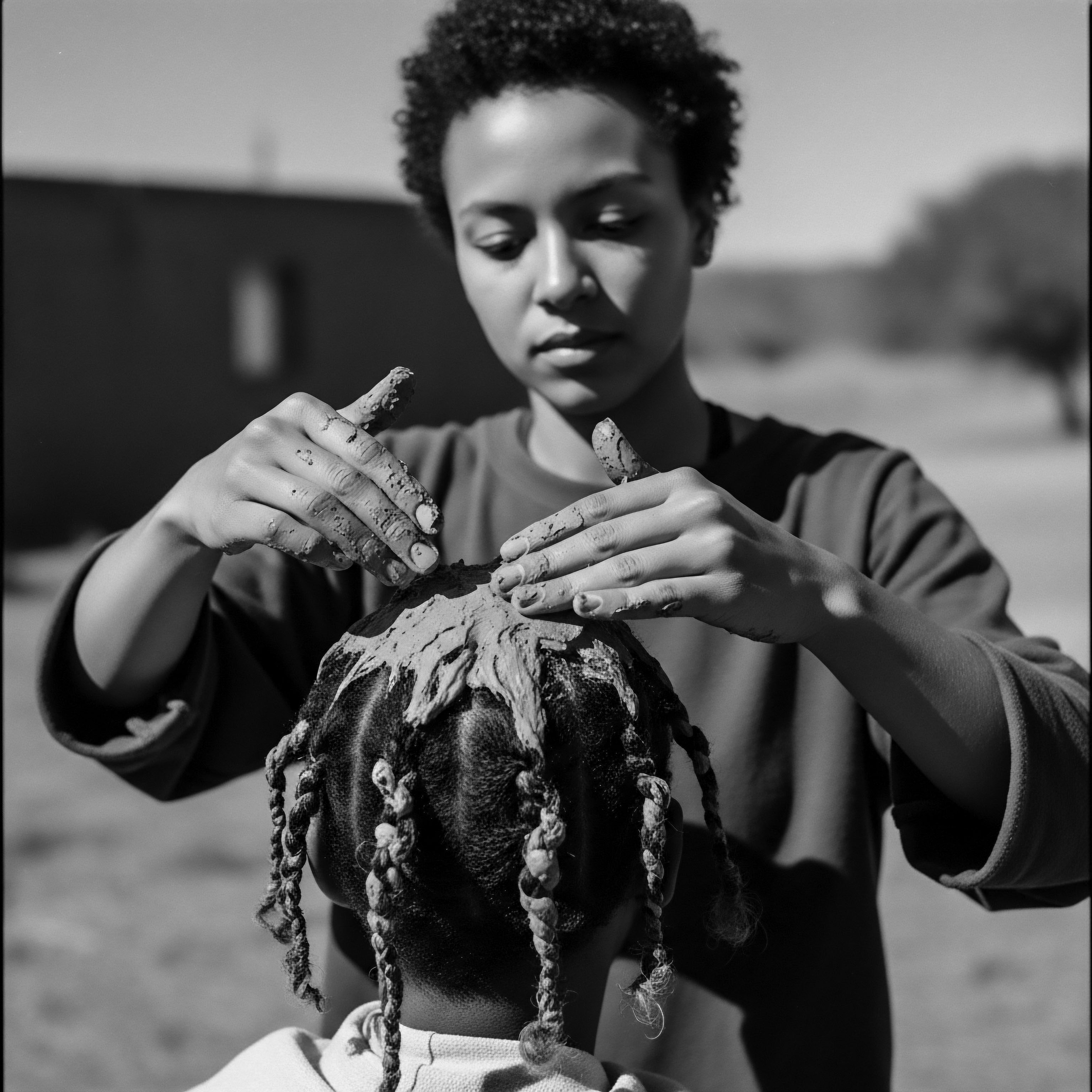
Reflection on the Heritage of Hair Fermentation
As our exploration of Hair Fermentation gently concludes, a profound realization emerges: the echoes from the source, those whispers of elemental biology and ancient practices, resonate powerfully through the living traditions of care and community, ultimately shaping the unbound helix of our identity and future. This understanding stretches beyond the scientific explanations of microbial action and nutrient enhancement; it settles into the soul of a strand, acknowledging that the care of textured hair is an inherited legacy, a continuous dialogue with the past. The definition of Hair Fermentation, therefore, is not a static pronouncement; it is a fluid, evolving testament to human ingenuity and an enduring relationship with the natural world.
From the careful gathering of rice or native herbs, passed from elder to apprentice, to the patient waiting for the subtle transformation that only time and microorganisms can bring, each step in the ancestral practice of Hair Fermentation held meaning. These were not random acts, but deeply embedded rituals, acts of love and wisdom that honored both the strands and the spirits of those who nurtured them. The resilience inherent in Black and mixed-race hair, its unique patterns and strength, finds a parallel in the enduring knowledge that survived forced migrations and cultural shifts, carried forward in subtle practices and oral histories.
The recognition of Hair Fermentation’s value, both through contemporary science and ancestral recall, stands as a testament to the cycles of discovery and rediscovery. Our modern understanding, with its precise nomenclature of enzymes and postbiotics, only deepens our appreciation for the intuitive brilliance of those who, observing the beneficial changes in their natural elixirs, applied this wisdom to their crowning glory. This ongoing conversation between ancient wisdom and current understanding strengthens our ability to voice identity and shape futures where every strand can thrive, unburdened by past misconceptions and nourished by a legacy of authentic care. It invites us to consider our hair not merely as a physical attribute, but as a living archive, holding stories, resilience, and the power of continuous transformation.

References
- Medical News Today. (2024, December 4). Rice water for hair: Benefits and how to use it.
- Yao Secret. (2023, December 19). Fermented Rice Water For Hair: History and Get it Now.
- James, P. (2023, July 3). A Guide to Scalp Microbiome. Penny James Trichology | NYC.
- VIORI Shampoo Bars. (2025, May 20). The Untold Science of Rice Water: How Fermentation, pH, and Scalp Microbiome Transform Your Hair.
- UZIMA. (2023, June 15). Three Truths About Scalp Care for Textured Hair.
- ACEF. Fermented Rice Water.
- An’du. (2025, May 2). 10 Reasons Why You Want a Healthy Scalp Microbiome.
- Agri Articles. (2023, July 14). Fermented Rice Water: A Natural Elixir for Beauty and Health.
- BiomeCentric. (2024, November 21). The scalp microbiome: The key to next-gen hair care.
- Bebrų Kosmetika. (2024, August 23). The Power of Hair in African Folklore: Rituals and Traditions.
- Khadge, S. et al. (2023, June). EFFECT OF FERMENTED RICE WATER ON HAIR. Journal of Emerging Technologies and Innovative Research, 10(6), 57.
- Mamaearth. (2023, July 18). Is Fermented Rice Water the Best Hair Care Solution?
- Tetteh, M. A. et al. (2023). Cosmetopoeia of African Plants in Hair Treatment and Care: Topical Nutrition and the Antidiabetic Connection? MDPI.
- Kim, H. S. et al. (2019). Poly(γ-Glutamic Acid)/Chitosan Hydrogel Nanoparticles For Effective Preservation And Delivery Of Fermented Herbal Extract For Enlarging Hair Bulb And Enhancing Hair Growth. International Journal of Nanomedicine, 14, 8409 ❉ 8419.
- UNESCO. (2024, January 23). Women of African descent: Guardians and transmitters of ancestral knowledge.
- Sullivan, K. (2024, January 1). Rice Water for Hair Growth: Does It Really Work? Health.
- Kerastase. Your Scalp Microbiome Is the Secret to Healthy Beautiful Hair.
- Działo, M. et al. (2023, December 14). Biological Activity of Fermented Plant Extracts for Potential Dermal Applications. Pharmaceutics, 15(12), 2775.
- Kauvery Hospital. (2025, March 28). Discover the Health Benefits of Neeraagaaram (Fermented Rice).
- Formula Botanica. Rice Water: Untap Its Potential in Your Cosmetic Formulations.
- Kim, H. S. Kwon, H. K. & Kim, M. (2019, October 22). Poly(γ-Glutamic Acid)/Chitosan Hydrogel Nanoparticles For Effective Preservation And Delivery Of Fermented Herbal Extract For Enlarging Hair Bulb And Enhancing Hair Growth. Semantic Scholar.
- Gallinée. Haircare’s best-kept secret: The benefits of fermented rice water for hair.
- Orlando Pita Play. (2023, November 17). Haircare Rituals Around the World: Exploring Global Traditions.
- Jung, H. J. et al. (2019, May). Bacillus/Trapa japonica Fruit Extract Ferment Filtrate enhances human hair follicle dermal papilla cell proliferation via the Akt/ERK/GSK-3β signaling pathway. ResearchGate.
- Tetteh, M. A. et al. (2024, February 1). Cosmetopoeia of African Plants in Hair Treatment and Care: Topical Nutrition and the Antidiabetic Connection? ResearchGate.
- El Khomsi, M. et al. (2021, August 10). Ethnobotanical survey of five wild medicinal plants used by local population in Taza province (Northeastern Morocco). JPPRes.
- Smith, E. (2015). Black women’s natural hair care communities: social, political, and cultural implications. Smith Scholarworks.
- Park, S. M. et al. (2024, October 22). In vitro and In vivo Hair Growth Promotion Effects of Lactobacillus plantarum-Fermented Plant Extracts (MBN). Request PDF.
- UNESCO Intangible Cultural Heritage. Safeguarding Endangered Oral Traditions In East Africa.
- Reddit. (2021, August 26). No raw oils and butters vs. Traditional African hair care?: r/Naturalhair.
- NewBeauty. (2025, March 4). Why Fermentation Is the Next Big Thing in Hair Care.
- Fix Salon. (2024, April 22). Celebrating Diversity: Cultural Influences on Hair.
- Aoufi, S. et al. (2016). Ethnobotanical Survey of Medicinal Plants used in the Treatment and Care of Hair in Karia ba Mohamed (Northern Morocco).
- Jamaica Observer. (2003, October 19). The history of Black Hair. All Woman.
- Blake, J. (2023, November 30). What Every Dermatologist Must Know About the History of Black Hair.
- Swank, R. (2025, January 23). Hair Care Practices from the Diaspora: A Look at Africa, America, and Europe.
- El Khomsi, M. & Dandani, Y. (2024, September 5). Ethnobotanical survey of five wild medicinal plants used by local population in Taza province (Northeastern Morocco). Malque Publishing.
- Travel Noire. (2024, April 11). Learn About Washing Hair with Fermented Rice Water at the World’s Longest-Hair Village.
- Vibe. (2018, February 28). A Visual History of Iconic Black Hairstyles.
- Moita, G. (2018). Oral Literature and Indigenous Knowledge: The Case of the San People from Southern Africa.
- Creative Support. The History of Black Hair.
- Citizens Advice – Bath & North East Somerset. (2021, October 8). Black History Month – Reclaiming the Afro.
- BBC News. (2015, May 31). How does black hair reflect black history?
- Substack. (2025, May 4). Ancestral Hair Rituals to Nourish Your Hair and Soul.
- Learn Canyon. (2024, September 4). Why Fermented Ingredients Boost Organic Skincare & Haircare.
- Ocean Salon Systems. (2024, July 22). The Benefits of Fermented Hair Care Products.
- The Conversation. (2025, April 23). Africa’s traditional fermented foods ❉ and why we should keep consuming them.
- Clinikally. (2024, February 17). Embracing the Wonders of Fermented Oils in Hair Care.
- Dias, M. F. R. (2015). Hair Cosmetics: An Overview. An Bras Dermatol, 90(6), 862 ❉ 871.


